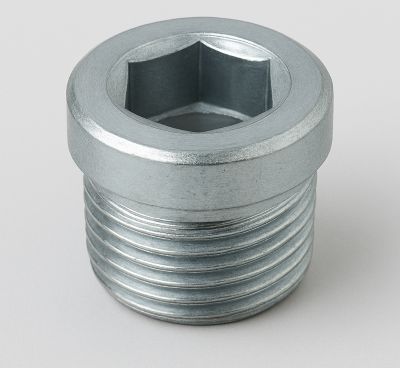Hydraulic systems are the backbone of countless machines, from construction equipment and agricultural tractors to industrial manufacturing lines. These systems operate under extremely high pressures, making fluid sealing critical to efficiency, safety, and performance. Even the smallest leak can reduce system reliability, cause environmental hazards, or damage sensitive components.
That’s why selecting the right sealing components, like plugs, is essential. A Hydraulic Port Internal Hex Plug is designed specifically to provide leak-proof sealing, ensuring that hydraulic systems stay secure and efficient. In this post, we’ll explore what these plugs are, their features, applications, benefits, and how to choose and maintain them.
What is a Hydraulic Port Internal Hex Plug?
A hydraulic port internal hex plug is a threaded plug designed to close off unused or open hydraulic ports. Its primary function is to prevent fluid leakage and keep contaminants such as dirt, dust, or moisture out of the system.
Unlike external hex plugs that require a wrench on the outside, the internal hex plug uses an Allen/hex key that fits into the recessed socket. This makes it a compact solution that can be installed in tight or recessed areas.
These plugs are commonly manufactured from:
➡️ Carbon steel for strength and durability.
➡️ Stainless steel for corrosion resistance.
➡️ Brass for lighter-duty applications and fluid compatibility.
➡️ Zinc-plated steel for added protection against rust.
Key Features of the Leak-Proof Design
The design of internal hex plugs is optimized for hydraulic systems where reliability is non-negotiable. Key features include:
➡️ Internal hex socket – Easy installation and removal using standard Allen/hex keys.
➡️ Precision threading – Ensures a tight, accurate fit to prevent leaks.
➡️ Leak-proof sealing surface – Provides maximum protection against fluid loss.
➡️ High-pressure durability – Withstands demanding operating conditions without failure.
➡️ Corrosion resistance – Extends service life even in harsh environments.
These features make the hydraulic port internal hex plug a trusted choice for both OEM manufacturers and maintenance engineers.
Applications in Hydraulic Systems
Internal hex plugs are widely used across industries where hydraulic systems play a critical role:
➡️ Hydraulic machinery – Excavators, loaders, and presses.
➡️ Industrial equipment – Manufacturing machines, test benches, and automation systems.
➡️ Construction and agriculture – Tractors, bulldozers, and combines.
➡️ Maintenance and safety – Closing unused ports during system modifications or repairs.
They are available in various thread standards, including BSP, NPT, and metric, ensuring compatibility with global equipment.
Benefits of Using Internal Hex Plugs
Hydraulic port internal hex plugs deliver several advantages that make them indispensable:
➡️ Leak prevention – Protects system efficiency and prevents costly downtime.
➡️ Compact design – Fits easily into confined areas without protrusion.
➡️ Ease of use – Quick installation and removal with common hex tools.
➡️ Cost-effective – A simple yet reliable solution for sealing unused hydraulic ports.
➡️ Reliable performance – Stands up to high pressures, vibrations, and harsh operating conditions.
Choosing the Right Hydraulic Port Plug
Not all plugs are created equal. To ensure long-term leak-free performance, consider:
1. Thread type and size – Match to your hydraulic port specification (BSP, NPT, or metric).
2. Material compatibility – Choose materials resistant to the fluid type in your system.
3. Pressure and temperature ratings – Ensure the plug can handle your system’s working conditions.
4. Industry standards – Look for compliance with ISO, DIN, or SAE for reliability and safety.
Maintenance Tips for Leak-Free Performance
Even the best plugs require proper handling to maintain effectiveness:
1. Apply the correct installation torque to avoid overtightening or stripping threads.
2. Inspect threads and sealing surfaces before installation for signs of wear or damage.
3. Conduct regular system checks to detect leaks early.
4. Replace plugs if corrosion, deformation, or damage is observed.
Following these practices ensures long-lasting sealing performance and prevents costly system failures.
Conclusion
In hydraulic systems, even the smallest leak can have major consequences. A Hydraulic Port Internal Hex Plug offers a compact, durable, and leak-proof solution for sealing unused ports, protecting both performance and safety.
With precision threading, corrosion resistance, and high-pressure durability, these plugs are a cost-effective way to maintain the reliability of hydraulic equipment.
For anyone working with hydraulic systems, investing in high-quality internal hex plugs is a small step that pays off with major benefits in efficiency, safety, and long-term system performance.
Post time: Sep-11-2025


